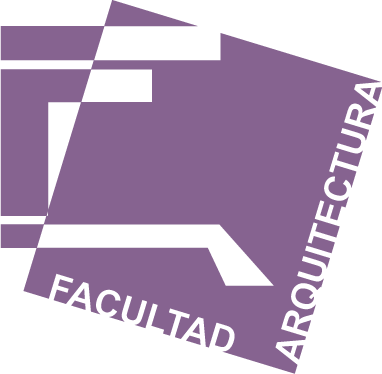Registro completo de metadatos
| Campo DC | Valor | Lengua/Idioma |
|---|---|---|
| dc.creator | López Uribe, Cristina | |
| dc.date.accessioned | 2025-01-23T22:19:56Z | - |
| dc.date.available | 2025-01-23T22:19:56Z | - |
| dc.date.issued | 2018-12-17 | |
| dc.identifier | https://www.revistas.unam.mx/index.php/bitacora/article/view/68090 | |
| dc.identifier.issn | ISSN electrónico: 2594-0856 | |
| dc.identifier.issn | ISSN impreso: 1405-8901 | |
| dc.identifier.uri | https://repositorio.fa.unam.mx/handle/123456789/19464 | - |
| dc.description.abstract | Reflections on perception and the senses are essential to understanding the moment in which a work of architecture, an urban space or an interior becomes meaningful. When a place is truly revealing, it is perceived as a complete atmosphere, it has musical qualities, textures of different materials, complex smells, a certain degree of humidity; it is the combination of these perceptions, experienced in solitude or in proximity to other bodies – even in the midst of the multitude – and in movement. These places allow us to find some meaning to existence, or at the very least a consciousness of the present or nostalgia for the past. Whether in our everyday lives or in exceptional circumstances, we experience them through our senses. The meaning of architecture cannot be reduced to objectivity; it arises from an emotional, multisensory experience.Thanks to many recent movies, we can understand how sounds immediately situate us: through the flute of a knife sharpener, the whistle of a sweet potato seller, the siren of an ambulance, we are conscious of the auditory identity of a city. But something must be done to ensure that these sounds do not disappear, as they are incredibly vulnerable. Some foreigners swear that Mexico City smells like nixtamalized corn meal, even from the airplane. In other words, the city also has an aromatic identity, which can also disappear. What does architecture smell like? For this issue, we have proposed an olfactory experiment that smells of metal, lacquer and glass, of modernity and spaciousness. Or in the words of its designer, Izaskun Díaz Fernández, “a fragrance that captures the importance of the sensory properties of the materials, the work, the people that built it and live in it and of all the factors covered by the term ‘architecture.’ Metal, earth (brick), dust (cement, concrete and stone) and wood.” | |
| dc.format.extent | Páginas: 02-03 | - |
| dc.language | spa | |
| dc.publisher | Universidad Nacional Autónoma de México. Facultad de Arquitectura | |
| dc.rights | La titularidad de los derechos patrimoniales de esta obra pertenece a las instituciones editoras. Su uso se rige por una licencia Creative Commons BY-NC-ND 4.0 Internacional, https://creativecommons.org/licenses/by-nc-nd/4.0/legalcode.es, fecha de asignación de la licencia 2018-12-17, para un uso diferente consultar al responsable jurídico del repositorio por medio del correo electrónico editora.bitacora@fa.unam.mx | - |
| dc.subject | senses | |
| dc.subject.classification | Multidisciplina | |
| dc.title | senses | |
| dc.type | Artículo de Divulgación | |
| dcterms.audience | Publico en general | - |
| dcterms.provenance | Universidad Nacional Autónoma de México. Facultad de Arquitectura | - |
| dc.rights.holder | La titularidad de los derechos patrimoniales de esta obra pertenece a: Universidad Nacional Autónoma de México | |
| dc.publisher.location | MX | |
| dc.rights.accessRights | Acceso abierto | |
| dc.identifier.url | https://www.revistas.unam.mx/index.php/bitacora/article/view/68090/60095 | |
| dc.identifier.doi | https://doi.org/10.22201/fa.14058901p.2018.39.68090 | - |
| dc.relation.ispartofjournal | Bitácora Arquitectura; Núm. 39 (2018): Sentidos | |
| dc.description.repository | Repositorio Facultad de Arquitectura. https://repositorio.fa.unam.mx/ | |
| dc.identifier.bibliographiccitation | López Uribe, Cristina (2018). senses. Bitácora Arquitectura; Núm. 39, 2018: Sentidos; 02-03. Recuperado de | - |
| Aparece en las colecciones: | Bitácora Arquitectura | |
Los ítems de DSpace están protegidos por copyright, con todos los derechos reservados, a menos que se indique lo contrario.

